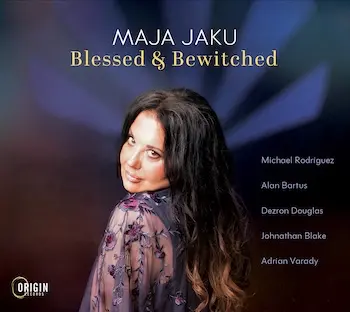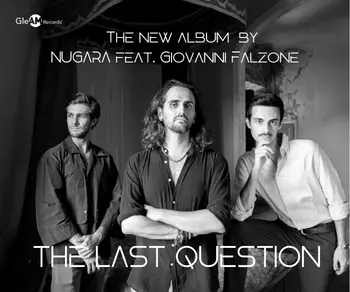Ryan Truesdell: Shades Of Sound – Gil Evans Project Live At Jazz Standard Vol. 2 (Outside In Music OIM2515)
This is a superb tribute to the work of jazz master Gil Evans. The wonderful textures that Evans exploited – especially using tuba and French horns, but also viola, woodwinds and brass – are heard to full advantage here. The album features interpretations of some of Evans’ classic scores, especially of Howlin’ Wolf’s 1960 recording of Willie Dixon’s Spoonful.
I hadn’t come across Truesdell’s work before, but previously he’s released two tributes to Evans, in 2012 and 2015, both on ArtistShare. These are Ryan Truesdell Presents Centennial – Newly Discovered Works Of Gil Evans and Ryan Truesdell Presents Gil Evans Project Live At Jazz Standard: Lines Of Color. This third album makes an excellent contribution.
For me, there are several highlights. Howlin’ Wolf’s 1960 interpretation of Willie Dixon’s Spoonful was orchestrated by Gil Evans in 1964. But I don’t think that Evans ever had a better soloist than the tenor saxophonist here, Donny McCaslin, whose career was given a boost by his association with David Bowie. Here his solo is very personal, richly wrought and beautifully paced – one of the finest recent tenor solos I can recall. The track also features a superb contribution from the late lamented Frank Kimbrough on piano.
Ryan Kaberle is the fine trombone soloist on a plangent interpretation of The Ballad Of The Sad Young Men, a song written by Tommy Wolf and Fran Landesman and first released in 1959. Bertolt Brecht and Kurt Weill’s Barbara Song is my third standout track. The song was written for The Threepenny Opera, where it was sung by the character Polly Peachum, and is one of the most haunting products of the Brecht/Weill collaboration. Truesdell’s beautiful interpretation features one of Evans’ finest re-compositions. On several other tracks, Wendy Gilles is vocalist. A really excellent release.
Shinken Shobu: Sou Makuri (self-release)
Jazz is not known for the contributions of harpists. I recall my surprise on first hearing Caspar Reardon’s beautiful solo on Jack Teagarden’s Junk Man (1934). It’s an unusual gem, but there haven’t been too many jazz harpist successors – though in free improv Rhodri Davies is a key presence in the contemporary scene.
Now comes a group led by Swedish harpist Stina Hellberg Agback. She is a name new to me, though apparently she has long been a major presence on Sweden’s jazz and improv scene. Her latest release is by her first fully autonomous ensemble, Shinken Shobu – that is, the material is entirely her own. Its moniker is a Japanese expression meaning “a duel with sharp swords”, and it signifies seriousness. The album is certainly serious, without being po-faced.
Her group also features players I wasn’t familiar with. The quintet is an unconventional lineup, and matches the album’s original conception – the result comes across like a gentle, understated kind of string-based free improv. Aside from the leader, the other front-line string player is Eva Lindal, whose background is in classical violin. Alberto Pinton on woodwinds has collaborated with Kenny Wheeler, Maria Schneider and John Surman. Bassist Filip Augustsson, and drummer Jon Fält (of the magisterial Bobo Stenson Trio) complete the line-up.
The album opens with the plangent 21:an, which is followed by the bluesy Swag, a more intense and swinging contribution. Plutten is beautifully bucolic, while Svåra is gentle at an ad lib tempo. The album’s mood tends to be fey, ethereal and rather light, but overall the effect is delightful. This is an unusual and highly recommended release.




